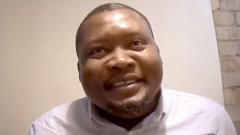In the U.S., the trade of human body parts has become a subject of ethical scrutiny as body brokers operate under looser regulations compared to other countries. This article details the troubling experiences of families who donated loved ones' bodies to science, exposing a darker side to a seemingly altruistic gesture.
Harold Dillard was 56 when he was diagnosed with an aggressive cancer around his abdomen in November 2009. In his final days, Mr. Dillard was approached by a company called Bio Care, who offered to take his body for medical science. What was framed as a selfless act of donating his body soon turned into a nightmare for his family when they later discovered his remains mishandled and unceremoniously dismembered.
This unsettling intersection of medical science and the profit motive draws attention to a burgeoning industry known as body brokering, where for-profit entities acquire bodies, dissect them, and sell body parts to medical research institutions without the robust regulations found in other countries.
As laws struggle to keep pace with these practices, critics argue that this trade leverages desperate families' wishes to provide a legacy while exposing them to exploitation. In many instances, individuals seeking to manage the costs of death bypass ethical considerations, with the promise of free cremation often blinding them to the larger implications of body donation.
The conversation surrounding body donation evolves, questioning whether these practices may serve a vital role in medical advancement or fundamentally undermine human dignity and respect for the deceased.
As discussions about regulation heat up, the urgent need for public awareness and ethical guidelines remains paramount. Medical experts emphasize that while the for-profit brokering of bodies fulfills a demand, a reconsideration of regulatory frameworks is essential to protect the integrity of the deceased and uphold moral commitments to those left behind.
This raises the poignant question: In seeking to advance science, how do we ensure we are honoring the dignity of the deceased?





















